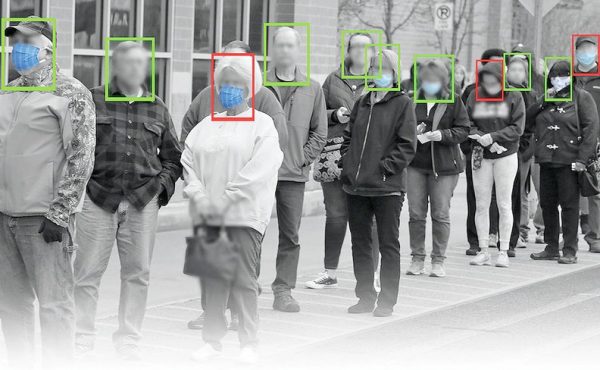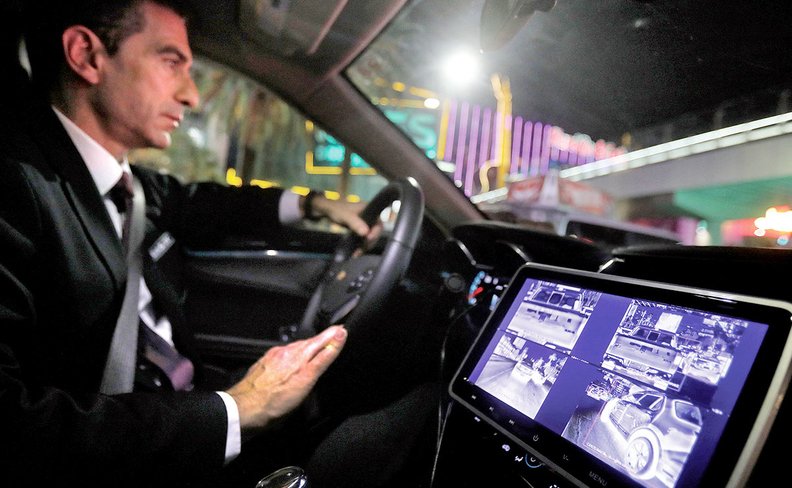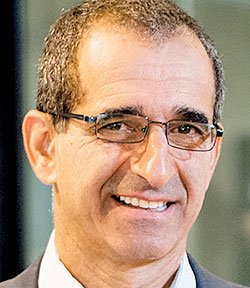Israeli startup Adasky uses its automotive technology to fight COVID-19 – Automotive News

Adasky’s thermal-imaging cameras could be used to measure multiple body temperatures from afar.
Standing in a lengthy line at a grocery store or sitting in a crowd at a sporting event once seemed like the most ordinary of activities. Amid the coronavirus outbreak, they’re unfathomable.
For the world to reopen, governments and businesses must find ways to ensure gatherings of people don’t threaten the health of workers or consumers. Adasky, an Israeli auto-tech startup, thinks it has found a way to accelerate a return to something resembling a normal way of life.
In regular times, Adasky develops thermal-imaging camera technology for use in driver-assist systems and autonomous vehicles. But two weeks ago, company leaders and software engineers met for a brainstorming session on how they could help thwart COVID-19.

Raz Peleg, Adasky’s director of sales, shows the thermal-sensing tech on screens during CES in January in Las Vegas.
Within a matter of days, they cobbled together prototypes that relied on their camera technology’s ability to measure heat. Instead of detecting objects on a road, that capability can now be used to measure the precise body temperature of prospective buyers at a car dealership, sports fans — anyone in public places.
“After what we are witnessing now, the world after is going to look different in many ways,” Adasky CEO Yakov Shaharabani told Automotive News. “Technology will overcome the need for us to do what we’re doing, which is isolating ourselves. Technology will, step by step, help us get back to the world we knew a few weeks ago.”
This week, the company will deploy cameras for temperature-taking applications in multiple Israeli hospitals.
Those field tests will serve as an important validation tool, though internal testing has revealed accuracy down to a hundredth of a degree.
Of course, the cameras cannot discern whether a person has the coronavirus. They merely serve to spot elevated body temperatures, a telltale symptom. That alone might be an important tool for maintaining vigilance and reassuring workers and consumers alike that best public-health practices are being followed.
“I can definitely see a situation not far from today when these thermal cameras will be in all public areas, kind of like fire extinguishers,” Shaharabani said.

Shaharabani: Can save lives
He said Adasky has already had conversations with potential users who see benefits in ensuring high-profile CEOs and senior government officials are not in proximity to anyone who has a fever.
The camera is the same used for automotive purposes. What’s changed is the software. Normally, it detects heat at ranges needed for automotive applications, but the camera was tweaked to work at short ranges and focus on taking temperatures from a specific body part, typically the head. The cameras can work passively from afar — they don’t need to be held — and they can gather temperature information simultaneously on anyone in their field of view, avoiding the need for queues of people waiting to be scanned.
At mass scale, Shaharabani says it’s possible the cameras would cost less than $100 each.
Only a month ago, he would never have envisioned such a new line of prospective business. On March 23, AdaSky inked its first major automotive deal for its thermal-sensing technology. Though he could not disclose the automaker, Shaharabani said the deal is with an electric vehicle automaker producing a Level 4 automated vehicle.
Long focused on sensor configurations that have included only radar, lidar and traditional optical cameras, automakers and others in the self-driving industry have taken a closer look at thermal-sensing technology over the past year as a potential way to address scenarios that still vex self-driving systems.
Shaharabani stresses the company remains focused on its automotive offerings. But amid a suddenly uncertain future for the industry in general and autonomous vehicles in particular, he’s excited to explore the public-health realm and help make a difference in the fight against the coronavirus.
“It’s a very different business model and market, but the need is urgent, and we will do whatever is needed in order to save lives,” he said. “We think we can definitely save lives. And the beauty of being a startup is the agility and ability to move very fast. That’s what we’re doing now.”






